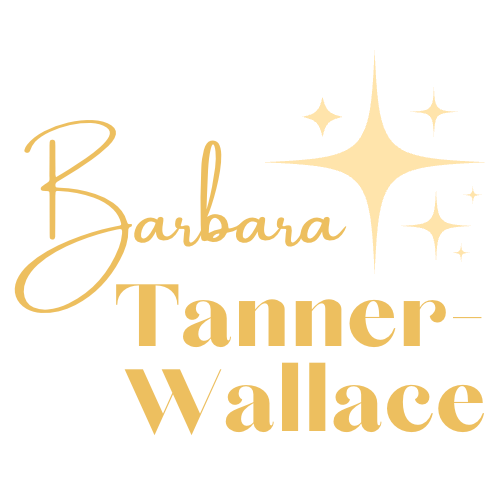Recently, I was asked if I had any advice for an aspiring author. I had a lot of thoughts, but in the spirit of brevity, I’ve narrowed my tips to ten. My writing friends will note that much of what I’ve written I should heed myself. As with all advice, take what you want and leave the rest.
Dear Aspiring Author:
So, you’re going to become a writer. Fantastic! Go for it. The world is full of people who dream of becoming writers, but very few follow through on their dreams. Believe in yourself and becoming one of the few. No matter what else happens, you can be proud that you typed ‘The End’.
It took me over a decade to sell a book. It was my fifth novel. The other four were casualties on my long, bumpy road to publication. Twenty years later, the publishing landscape has changed a lot. Yet in many ways, it’s remained the same. Every year I see new authors making the same mistakes I made.
Therefore, before you begin your journey let me share with you a few pieces of advice that, hopefully, will help you find success.
- Take time to enjoy writing that first novel. My friend, Judith Arnold, once joked, “Writing a book is the opposite of having sex. The first time is the best, and after that it goes down hill.” She’s right. The first draft of your first novel is a magical time when every idea you have feels brilliant and original. You will never write as freely again.
- Do not fall into the trap of starting one book after another. Writing the middle of a book is akin to being on a densely forested mountain. The easiest parts of a book to write are the first three chapters. The last three chapters are pretty easy too, but a lot of prospective writers won’t know that because they get discouraged when they hit the middle of the book. The middle of the book is when writing gets hard and the story loses some of its luster.
It’s around this time that a new, shiny, way more interesting idea will pop into your head. I know this because it happens to be every single time. It’s happened to colleagues who have written twice as many books. You will be very tempted to throw your current book away believing that this new idea will be easier to write. It won’t. It too will become difficult after the opening chapters. Stick with the story you’re writing. Eventually you will come out of the forest and reach the fun part again.
- When you type “The End’, celebrate. You’ve achieved something a lot of people never do – you wrote a novel. Be proud of yourself. You are a writer. Do this every time you finish a book because no matter how many books you write, finishing is an accomplishment.
After you celebrate, get back to work. While the first draft makes you a writer, it’s revising that makes you an author.
- Read, read, read. Then read some more. Read everything you can get your hands on. Read good writing. Read bad writing. Read books in your genre even if the plot doesn’t grab you. Break the books down to see what makes them good or bad. Study why a certain book grabbed readers. Learn about theme, setting, and characterization. Figure out what makes a good story.Read outside your genre and nonfiction as well. Listen to podcasts. In short, learn. While you’re at it, get out from behind the computer and explore the world. The more knowledge and life experience you acquire, the more depth and resonance your writing will have.
- Rushing the process will only lead to heartache. You will be tempted – oh will you be tempted – to pitch your story to an editor or agent before it’s finished. I understand. You hear about other people submitting their books and you get impatience. However, I speak from experience: Don’t do it. Do not let impatience or anxiety cause you to pitch a manuscript too soon. Only last year, I submitted The In Crowd on proposal to my dream agent because I was anxious to make forward movement. She rejected the story. A year later, I’ve made substantial improvements on the story. Now I’m going to have to ask her if she would be willing to review the story a second time. A little patience would have saved me some groveling.
- Never assume you know all there is to know about writing. I’ll never forget the first time I gave a workshop at a conference. A well-known NYTimes author sat in the front row. I was a new author with only a few books under my belt. She, on the other hand, had written dozens. And yet, she took notes while I spoke. What could I, a newbie, teach her? I have no clue. But that day she taught me that no matter how successful a writer becomes, they stay successful by continuing to learn.
- Remember that because you can doesn’t mean you should. It always distresses me when I read twitter feeds from authors who were rejected by an agent or editor, and someone suggests they self-publish. Self-publishing has given authors a lot of autonomy. We no longer need traditional publishers to earn a living. However, while self-publishing is a viable business option for authors, it is not – and should not be – a rebound option.
We love to blame the market or agent for our rejections, and while foisting the blame makes us feel better, it isn’t always correct. The truth is, not every book that’s written is good enough for publication. I know, I wrote four of them. If you are being rejected over and over, chances are there is something wrong the story. Not always. Editors do make mistakes. But in my experience, most rejections are writing- or story-based. Especially when it comes to new authors.
- You’ll hear a lot of debate regarding self-publishing versus traditional publishing, and which is the best path to success. The only best publishing path is the path that works for you. I know people who have made a lot of money in self-publishing, and I know people who would rather be traditionally published. I also know people who just want to see their name on a book cover and don’t care if they sell a single copy. The definition of publishing success is your and yours alone to make.
- No two writers have the same process or the same path to success and that’s okay. Don’t let the comparison monster suck you dry. There will always be writers who are faster than you or sell first. Sometimes it’ll feel like everyone in the world is submitting and selling while you’ve been writing Act 2 for a year.
Again, I speak from experience. I am a horrifically slow writer. I need to draft a scene by hand first, then type it. As a result, I produce about half the pages as other writers. Over the years, I’ve tried for years to match the output of my more prolific friends only to fail time and time again. I’ve cried in frustration reading publishing deal announcements, convinced the writing world was leaving me behind. For all the crying and trying to change myself, my process is still the same.
A writing career is not a race. There’s no prize for selling first or putting out the most words in a week. The only person you’re competing against is yourself. All those other authors? They’re competing against themselves as well. Remember what I said about not letting anxiety goad you into rushing the process? Don’t let anxiety turn to discouragement either. Your book, your success, is going to take however long it takes.
- Don’t let the business side of the industry make you crazy. You’re going to read a lot about marketing and promotion, so much so that you’ll sometimes feel overwhelmed. Unfortunately, there’s no escaping marketing. It’s a necessary evil we must all embrace.
As important as marketing and publishing are, nothing – and I mean nothing – is more important than the words on the page. Stories have been around since the beginning of time. They teach us and they provide escape.
People who write stories are special. We have been given a gift. If you don’t believe me, consider how many people have trouble writing a thank you note. Or better yet, how many people ask from where you get your ideas. They no more understand the writing process than I do engineering or oil painting.
Take time to appreciate how unique you are, and never, ever lose the joy that brought you to the page.
Good luck. Remain persistent, and remember, every writer gets rejected. It’s picking yourself up that matters.


